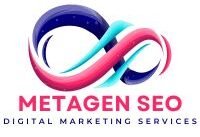What you'll learn with ecommerce digital marketing agency
How to Build an Ecommerce digital marketing agency in hyderabad
Step 1: Planning and Research
Creating a successful ecommerce business starts with a solid foundation, and partnering with an experienced ecommerce digital marketing agency can make all the difference. The first step is to define your niche and target audience; understanding the specific market you want to serve and the unique needs of your potential customers will allow a digital marketing agency to tailor your products and campaigns effectively. Conducting a competitive analysis is crucial for identifying your competitors’ strengths and weaknesses, providing valuable insights that an ecommerce digital marketing can leverage to differentiate your business and offer something unique. Finally, setting clear goals and a budget will help guide your overall business strategy, ensuring your marketing efforts are aligned for maximum growth and success.
Step 2: Choose the Right Platform
When setting up your eCommerce website, the initial steps are vital, and an ecommerce digital marketing agency in hyderabad can help ensure you’re on the right path. Start by selecting an ecommerce platform that aligns with your business needs and growth goals; options like Shopify, WooCommerce, or Magento provide various features to support your online store effectively. With the guidance of an ecommerce marketing company, you can choose the best platform for your unique requirements. Next, register a domain name that reflects your brand identity and is easy for customers to remember. A strategic domain name enhances your online presence and builds trust with your audience from the very beginning.
Step 3: Design and Experience
When designing your eCommerce website, start by choosing a template or theme that aligns with your brand’s aesthetic and functionality needs. Customize the design to create a visually appealing and user-friendly interface that enhances the shopping experience. It’s essential to set up essential pages such as the home page, product pages showcasing detailed descriptions and high-quality images, an informative About Us section to build credibility, and a Contact Us page for customer inquiries and support.
Step 4: Product Listings and SEO Optimization
After setting up your ecommerce website, the next step is to add products with compelling descriptions, high-quality images, and transparent pricing—a process that an ecommerce digital marketing agency in hyderabad can help optimize. Each product page should be carefully optimized for SEO by incorporating relevant keywords into titles, descriptions, and meta tags. By partnering with an ecommerce digital marketing , you ensure that your products are easily discoverable on search engines, driving organic traffic to your site and maximizing your reach to potential customers.

Step 5: Implement Marketing and Analytics
Set up Google Analytics to track and analyze visitor behavior, helping you optimize marketing efforts based on real-time data insights. Utilize email marketing to nurture leads and engage customers with personalized content and promotions. Leverage social media marketing to build a community around your brand, drive traffic, and enhance customer relationships. Implement PPC advertising campaigns on platforms like Google Ads to target specific audiences and increase visibility. Lastly, employ strategic content marketing to educate and attract prospects, establishing your authority in the industry and driving conversions
Step 6: Test and Launch
Before launching your eCommerce website, it’s crucial to thoroughly test your website to ensure all functionalities work seamlessly. Conduct extensive testing to verify user experience, functionality across different devices and browsers, and checkout processes. Address any issues found promptly to provide a smooth shopping experience for customers. Once testing is complete and everything is running smoothly, you’re ready to launch your website.
Step 7: Monitor and Improve
After launching your eCommerce website, it’s essential to track performance using tools like Google Analytics. Monitor key metrics such as traffic sources, conversion rates, and sales to gauge the effectiveness of your strategies. Additionally, collect customer feedback through surveys, reviews, and social media interactions to understand their needs and preferences better. Use this valuable input to make informed decisions and improve your products and services. Lastly, ensure regular updates to your website, including new product launches, content refreshes, and feature enhancements. Keeping your site fresh and relevant encourages repeat visits and strengthens customer loyalty, driving sustained growth for your eCommerce business.

